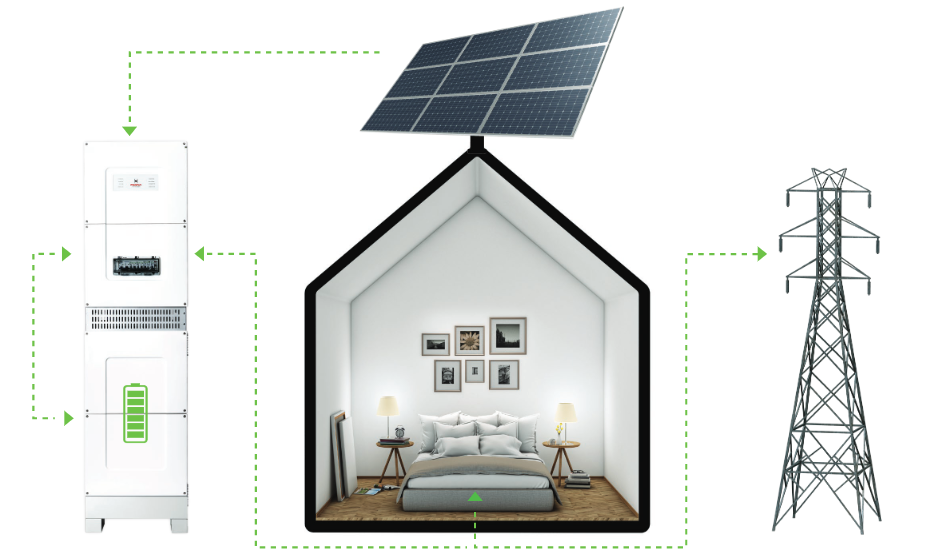A coastal town in the Southwest of Western Australia may soon see around 1,000 of its households connected in a virtual power plant (VPP) project backed by Swiss investment firm SUSI and local solar supplier Redback Energy.
The Dunsborough Community Energy Project (DCEP) is described as a community built, owned and managed renewable energy facility, which will centrally control the network of solar PV and battery systems provided and installed for a flat fee.
It aims at reducing household energy costs and moving toward a 90% renewable energy target across the Southwest, expanding to other parts of the state.
According to the group behind the project, the VPP with 1000 households will be able to provide 6.5 MW of solar at peak, 9.6 GWh of energy per year and displace 7 kt of carbon emissions every year.
DCEP offer
Under the scheme, homeowners and businesses will receive 1 Redback 5.5 KVA Inverter, 6.6kw of Suntech 300w solar panels, 9.6kwh of Pylontech (LiFePo4) batteries and installation by trained installers, for a fee of $35 per week.
“As it is a leased-based product, ultimately owned by the community, we are looking to be able to offer this product as broadly as possible and want to find ways to incorporate homeowners, businesses and renters. Given that there will be no upfront costs of obtaining a system it makes renewable energy available to everybody in the community,“ DCEP’s Emma Morgan tells pv magazine Australia.
WA-based Redback Energy will supply components, install all systems and manage the VPP, making sure each participant will have access to advanced software interface with all metering included, and lifetime service and replacement as part of the lease agreement.
For every system installed, Redback Energy will provide $250 to the Dunsborough Community Energy Project “community fund”, which will then be used to fund local community projects in schools, sporting clubs and or other projects.
“Redback Energy introduced the VPP concept to the team at DCEP and we began engaging with community groups and quickly got a ground swell of interest in progressing the idea,“ says Morgan.
Financing and future plans
The financial backing is coming from SUSI Partners, which will provide between $12.5 -$50 million in equity funding, thus making it possible for the participants to avoid paying the equipment and installation up-front.
The Swiss investment firm, with a focus on financing renewable energy infrastructure, was not willing to comment on the financial arrangement.
However, DCEP said Redback and SUSI had already been working on this idea with similar concepts and structures for different projects.
“Our community became rapidly excited about this concept and therefore we may be the first VPP to get off the ground whilst other projects lag behind us,“ says Morgan, noting that the DECP will start to roll out once there are 100 people signed up.
The initial goal is to orchestrate 1000 houses in Dunsborough, with the help of $12.5 million provided by SUSI, but the DCEP group underlines there is no real upper limit, since the project is not relaying on government subsidies.
“We are prepared to replicate the project in other regions such as Margaret River/ Augusta, Busselton/Vasse and possibly Geraldton and Albany. We are seeing a lot of interest and can take this quickly to 5000. SUSI is on board with this growth of the concept and will continue to support renewable energy in other regional areas of WA,” says Morgan.
While it aims to support the grid at peak times, DCEP will seek to meet 90% of energy needs of VPP participants, thus reducing their reliance on the grid dominated by WA state-owned retailer Synergy.
“We will aim to negotiate on bulk with Synergy to gain access to cheap off-peak wind power and to better support them in the capacity market,“ Morgan says.
Dunsborough residents interested in learning more about the project can attend information sessions to be held on Monday, October 1 and Tuesday, October 2, 2018 at 6:30 PM – 8:30 PM.
This content is protected by copyright and may not be reused. If you want to cooperate with us and would like to reuse some of our content, please contact: editors@pv-magazine.com.









By submitting this form you agree to pv magazine using your data for the purposes of publishing your comment.
Your personal data will only be disclosed or otherwise transmitted to third parties for the purposes of spam filtering or if this is necessary for technical maintenance of the website. Any other transfer to third parties will not take place unless this is justified on the basis of applicable data protection regulations or if pv magazine is legally obliged to do so.
You may revoke this consent at any time with effect for the future, in which case your personal data will be deleted immediately. Otherwise, your data will be deleted if pv magazine has processed your request or the purpose of data storage is fulfilled.
Further information on data privacy can be found in our Data Protection Policy.